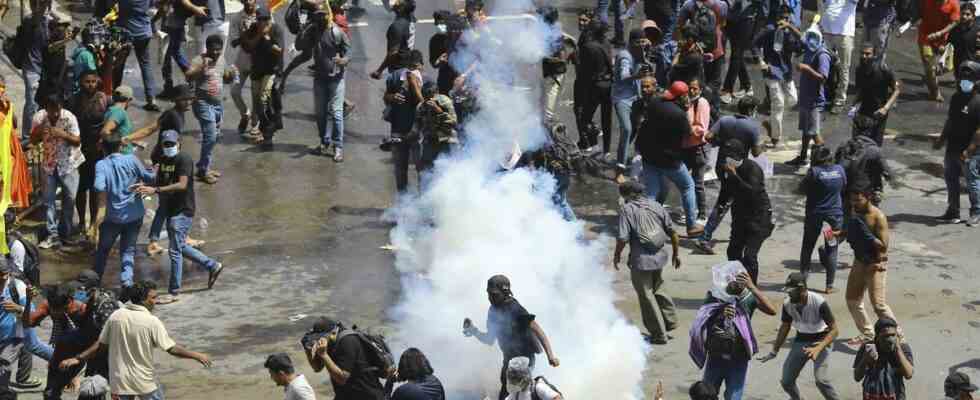Sri Lanka is falling into chaos. While the country is running out of oil and can no longer repay its foreign debt, demonstrators invaded the residence of the president in Colombo, which he had just fled. Prime Minister Ranil Wickremesinghe, who is next in line if President Rajapaksa steps down, immediately called an emergency cabinet meeting to discuss a “swift resolution” to the crisis. In a statement, he invited the leaders of the political parties to join this meeting and also asked that the Parliament be convened.
“The president has been escorted to safety,” a defense source said. “He is still the president, he is protected by a military unit,” added this source, according to which the soldiers guarding the official residence fired in the air to dissuade the demonstrators from approaching until Gotabaya Rajapaksa was removed. evacuated. Local television channels showed images of hundreds of people climbing the gates of the presidential palace, a building dating from the colonial era, located by the sea and symbol of power in Sri Lanka. Some protesters live-streamed videos on social media showing a crowd marching inside the palace.
Trains and buses requisitioned by protesters
Tens of thousands of people had previously taken part in a demonstration in Colombo to demand the resignation of Gotabaya Rajapaksa, held responsible for the unprecedented crisis which is hitting Sri Lanka and causing galloping inflation as well as serious shortages of fuel, electricity and food. The United Nations estimates in particular that around 80% of the population skips meals to cope with shortages and soaring prices. Colombo’s main hospital reported 14 people being treated after being hit by tear gas canisters during the protest.
On Friday, the police had imposed a curfew to try to discourage protesters from taking to the streets. But the measure was lifted after threats of legal action against the police chief from opposition parties, human rights activists and the country’s bar association. The curfew had been largely ignored by protesters anyway, some of whom even forced rail authorities on Saturday to take them by train to Colombo to take part in the rally.
“The curfew has not had a deterrent effect. He actually encouraged more people to take to the streets in defiance,” the defense official said. “Passengers requisitioned trains to reach Colombo”. Even as the country has nearly exhausted its meager petrol reserves, protesters, backed by the main opposition parties, have also hired private buses to travel to the capital. According to the authorities, some 20,000 soldiers and police had been dispatched to Colombo to protect the president.

